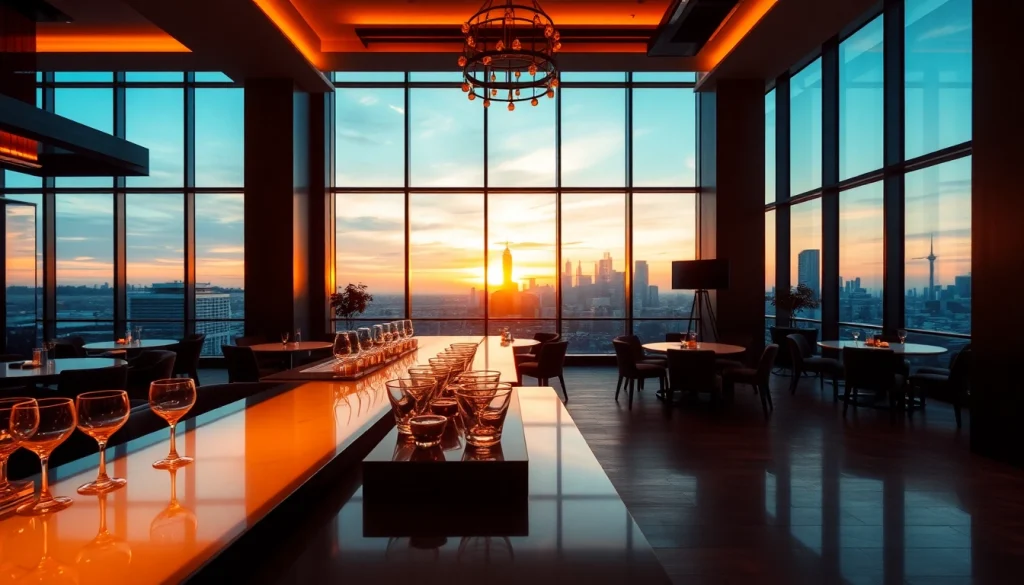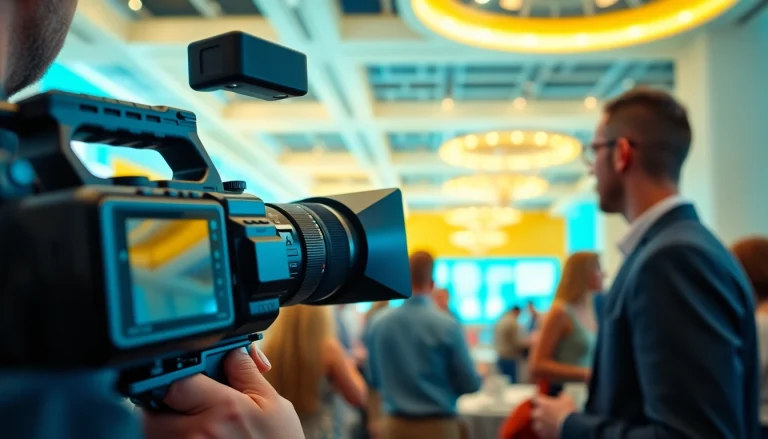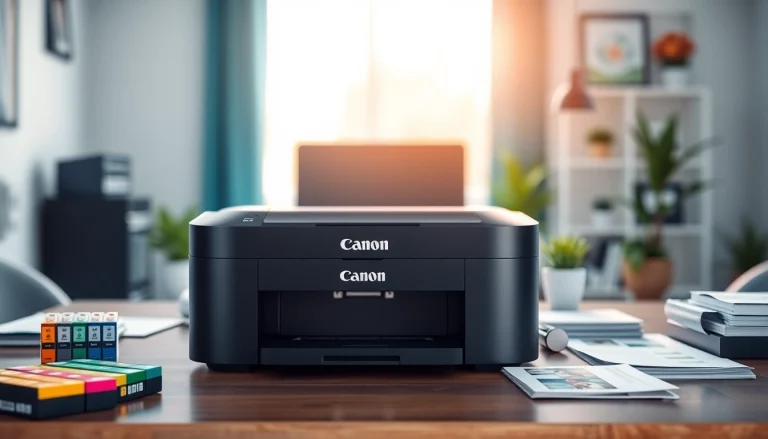
Understanding Event Space Requirements
Choosing the right event space is a vital step in planning any successful event. Whether you’re preparing for a corporate gathering, a wedding, or a birthday party, understanding your specific requirements is crucial for ensuring a memorable experience. This section will guide you through the essential considerations you need to make when selecting an event space.
Identifying the Right Venue Type
The first step in securing the ideal event space is to identify what type of venue fits your needs. Event spaces can range from traditional banquet halls and conference centers to unique locations like art galleries, lofts, outdoor gardens, and warehouses. The type of event you’re hosting plays a significant role here. For instance, a formal corporate event might require a sophisticated banquet hall, while a casual celebration could prosper in a quirky urban loft.
Begin by defining the mood and atmosphere you wish to create. Consider the following factors:
- Type of Event: Is it a wedding, corporate meeting, or social gathering?
- Theme: Does your event have a particular theme that could influence venue choice?
- Guest Interactivity: Will your event require areas for mingling, sitting, or presentations?
Considering Guest Capacity
Understanding your guest list is key to selecting an appropriate venue. Each event space has a maximum capacity, often depending on local fire regulations and space layout. Overcrowding can lead to discomfort, while too much open space can leave the atmosphere feeling empty.
To determine the right capacity, consider the following:
- Guest List: Start with an accurate estimate of attendees.
- Seating Arrangements: Consider whether you want a banquet-style setup, theater seating, or casual lounge space.
- Future Needs: If you anticipate last-minute additions, opt for a venue that can accommodate a few extra guests.
Evaluating Location and Accessibility
The venue location can greatly influence your event’s success. It should be accessible to your guests, preferably in a central or convenient area that is easy to find. Consider factors like parking availability, public transport access, and proximity to accommodations if guests are traveling from afar.
Furthermore, the accessibility features of the venue should also be evaluated:
- Wheelchair Access: Ensure the venue complies with ADA standards.
- Transport Options: Look for venues near major highways or public transit.
- Signage: Confirm that there are visible signs directing guests upon arrival.
Types of Event Spaces Available
Event spaces can be categorized in various ways, each offering unique benefits that cater to different event styles and requirements. Understanding the types of spaces available will help you decide the best fit for your occasion.
Indoor vs Outdoor Event Space
One of the primary decisions is whether to host your event indoors or outdoors. Both options come with their unique advantages. Indoor venues provide climate control and shelter from unpredictable weather, making them reliable year-round. On the other hand, outdoor venues can create a stunning ambiance, featuring natural beauty and open air to enhance the guest experience.
Consider the following when choosing between indoor and outdoor spaces:
- Weather Considerations: Have a backup plan for outdoor events, such as tents or nearby indoor spaces.
- Aesthetic Appeal: Outdoor venues can provide stunning landscapes or cityscapes as a backdrop.
- Noise Levels: Consider ambient noise levels and how they might affect your event.
Unique Event Space Options
For those looking to make their events memorable, unique event spaces are a popular choice. These can include historic buildings, warehouses, museum wings, or even private residences. Unique venues often come with built-in character, which can enhance your themes and overall experience.
When exploring unique venues, ask yourself:
- Architectural Features: Consider how the venue’s design can complement your event.
- Historical Context: Some venues may tell a story that could engage your guests further.
- Creative Opportunities: Unique spaces may offer flexibility for creative setups and activities.
Flexible Layouts for Different Events
The ability to adapt to different layouts is crucial in an event space. Some gatherings may require several different setups throughout the day, such as a theater layout for presentations, followed by tables for dining. Ensure the venue allows for rearrangement and customization to fit your agenda.
Key Features to Look for in an Event Space
Identifying a suitable event space goes beyond location and aesthetics; it’s essential to consider specific features that will support your event’s success. Here are some key aspects to evaluate:
Technical Facilities and Equipment
Modern events often rely on advanced technical setups. Check whether the venue provides necessary equipment and support. This includes:
- Audio-Visual Equipment: Ensure the space is equipped with necessary audio and visual technology.
- Wi-Fi Accessibility: High-speed internet access is critical for most professional events.
- Lighting Options: Inquire if lighting can be adjusted to suit different moods or presentations.
Amenities and Services Offered
Amenities can significantly enhance guest experience and ease the planning burden. Look for venues that offer:
- Catering Services: In-house food options can simplify your planning process.
- On-site Event Coordinators: Professionals who can help streamline logistics and assist with troubleshooting.
- Restroom Facilities: Ensure that the venue has adequate and accessible restroom facilities.
Decoration and Customization Options
The decoration of an event space plays a significant role in creating the desired aesthetic. Venues that allow for personalization enable hosts to align the atmosphere with their vision. Important aspects to consider include:
- Color Schemes: Can the space be transformed to match your color palette?
- Existing Furniture: What furniture is available, and can it be moved or altered as needed?
- External Vendors: Understand the venue’s policy on external decorators or equipment rentals.
Planning Your Event at the Chosen Event Space
Once you have chosen the perfect event space, the planning begins. This phase can include countless logistics, but planning is key to ensuring everything goes smoothly on the day of the event. Here’s how to tackle it effectively:
Budgeting for Your Event Space
Budgeting is critical for every event, and understanding the cost associated with your chosen space will dictate many other decisions. Make sure to consider all aspects of the budget:
- Rental Fees: Be clear about what is included in the rental agreement.
- Additional Costs: Account for extra services like catering, AV equipment, and staffing.
- Deposit and Cancellation Policies: Familiarize yourself with financial commitments and any penalties for changes.
Coordinating with Vendors
Once the venue is secured, coordinating with vendors becomes the next step. Whether you’re hiring a caterer, florist, or AV technician, ensure they are familiar with the venue layout and policies. Steps you can take include:
- Scheduling Site Visits: Invite key vendors to visit the space before the event.
- Communicating Needs: Share your vision and any specific requirements with your vendors.
- Creating a Timeline: Establish a timeline that considers both vendor set-up and event flow.
Promoting Your Event Effectively
Effective promotion is essential for ensuring a successful turnout. Utilize various channels to reach your desired audience, including:
- Social Media: Create an event page and provide regular updates.
- Email Campaigns: Use targeted email lists to invite and remind guests.
- Website or Blog: Maintain an online presence for providing information and updates.
Common Challenges and Solutions in Event Space Booking
Dealing with Last-Minute Changes
Events are dynamic, and changes can occur as your date approaches. Whether it’s a venue change or unexpected weather, having a clear plan is key. Consider:
- Flexibility: Keep alternative options in mind, especially regarding locations and dates.
- Clear Communication: Maintain open lines of communication with vendors and guests.
- Contingency Plans: Draft plans for various scenarios to manage potential disruptions.
Managing Expectations with Venue Policies
Understanding venue policies is crucial for managing expectations effectively. Before finalizing a venue, clarify:
- Cancellation Policies: Know your options in case of emergencies.
- Usage Restrictions: Inquire about time limits, noise restrictions, and decoration guidelines.
- Liability: Ensure you understand who is liable for any damages or injuries during the event.
Ensuring Accessibility and Safety for Guests
Lastly, ensuring the safety and accessibility of guests is paramount. Assess the chosen venue for:
- Emergency Exits: Ensure they are clearly marked and unobstructed.
- Safe Conditions: Make sure the venue complies with safety regulations.
- Accessibility Features: Confirm necessary accommodations for individuals with disabilities.






